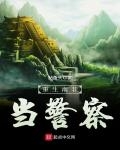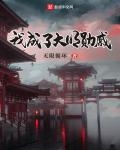Chapter 69: Light of Industry
Machines are easy to get, but workers are difficult to train.
Although when she first arrived in Nanhua, Elizabeth purchased more than a dozen general-purpose machine tools for repairing farm tools, and the two accompanying technicians also trained the workers, and Zhu Xianhai also specially selected more than a hundred people to learn how to operate the machine tools, they are currently just apprentices.
Of course, it was this group of apprentices who produced Nanhua’s first batch of grenade launchers and hand grenades.
But it is still a bit too early to let them operate machines and produce machines.
"It's okay, let them practice while producing!"
Some things cannot be rushed, Zhu Xianhai even took out a blueprint.
“Let’s produce this first.”
"This is?"
William Hansen wondered.
"A plowshare? Why does it have two plowshares?"
"This is a double-wheeled, double-share plow. We will use it to cultivate the land in the future."
Zhu Xianhai said.
"This double-share plow is completely different from the old plowshare in shape and structure. It is an iron frame with a lever in the middle and a wheel on each side. Two plowshares are installed at the lower rear of the iron frame, forming a triangular support with the pair of wheels in the front. There is a traction hook at the front of the plow, a control handle or a carrying handle at the back, and a gear to control the depth of tillage..."
The double-wheeled double-share plow was the first "advanced agricultural implement" promoted by the New China in another world, but its promotion ended in failure. This double-share plow introduced from the Soviet Union, although it has high working efficiency, is made of an iron frame structure, so its weight far exceeds that of two traditional plows, which increases the power required. Because of the large number of livestock used and the length of the plow itself, it occupies a much larger area than traditional plows. Therefore, the edges and corners of the land after plowing are particularly large. In short, it is not light, flexible, inefficient, and has little superiority, which determines that it will inevitably be regarded as a piece of chicken ribs in the future. But the reason is still "not acclimatized". The large number of livestock required is because China lacks heavy draft horses for agriculture, and the pulling power of local horses or cattle is small. As for the large edges and corners of the land for turning, it is because the plot is small and the number of turns is large.
But these are not a problem in Nanhua - Nanhua has a lot of land. As for heavy draft horses for farming, with Argentina here, will there be a shortage of horses?
If they don't sell it, the Mapuche will just snatch it away.
Of course, this is not the reason why Zhu Xianhai chose it. The reason why he chose the double-wheel double-share plow is that it is easy to use. It has a simple structure and a manufacturing tolerance of several millimeters. It has both castings and machined parts. Such a large manufacturing tolerance can be called a "hand-training artifact" for apprentices. The key is that the tolerance is large, so what? It does not affect the use! In the 1950s, countless county-level agricultural machinery factories improved the technical level of workers by manufacturing it, and then opened the door to local industrialization. Now Zhu Xianhai's plan is to train technical workers by manufacturing it, and let the workers practice first.
Sometimes, this is how industrial development works. If you look through local chronicles, you will notice that many factories started out as repair shops and eventually grew into large industrial enterprises through a little bit of technological accumulation.
take it easy!
The seemingly inconspicuous industrial light breeds the hope of industrialization.
As for the workers in the factory, they certainly don’t know what this seemingly small factory means. For an ordinary worker like Wu Liu, all he sees is... a monthly salary of six dollars.
This is six dollars a month with food and accommodation included.
And if you become a skilled worker in the future, you can earn more...
"An eighth-level worker can earn twenty dollars a month."
Once again, Wu Liu calculated the wages of the workers issued by the factory. No matter how he calculated it, it was more profitable than farming. Those "farm workers" who reclaimed wasteland and cultivated land only earned 4 pesos a month, which was only four dollars.
In fact, when formulating the wages and benefits for Chinese workers, Zhu Xianhai referred to the wage levels in Buenos Aires and also drew on the "eight-level wage system" of later generations. Of course, this wage system is not a big-pot meal, but follows the principle of distribution according to work: more work, more pay, less work, less pay, and no work, no pay. The eight-level wage system has clear and different specific requirements in terms of technical level, labor object, labor intensity, etc., from level one to level eight, reflecting the wage differences between skilled and unskilled workers, and between highly skilled workers and less skilled workers.
Of course, the current wage system is still being improved, but one thing that is certain is that the combination of wage levels and technical levels can promote workers' enthusiasm for learning and enable them to actively learn and research to improve their own skills.
Of course, after becoming a skilled worker, or even taking on apprentices, one can also earn extra income. Zhu Xianhai, who has worked as a laborer, knows very well what should be given to the laborers to promote their enthusiasm. Moreover, for him, these Chinese workers are his foundation. If he exploits them to the utmost, wouldn’t that be destroying his own strength?
"If you think about it this way, why would you need land? As long as you work in the factory for a dozen or twenty years, you will never have to worry about food and drink for the rest of your life..."
Thinking in his mind, Wu Liu once again focused his attention on the lathe. Although he was not yet very skilled in turning and milling parts, at least there were fewer waste products than at the beginning.
A reduction in scrap rate means an increase in revenue, which is also a motivation.
Amid the roar of machines, double-wheel plow parts with a metallic luster are produced one by one. After being assembled into finished products, these double-wheel plows will be sent to the reclamation area in the north of Nanhua, where thousands of people are waiting for farm tools.
Although the crops are produced and sold by the farmers themselves, the initial cost can be recovered as the wheat and cotton grown in the reclamation area are harvested. As the number of new agricultural tools increases, the area of the reclamation area is also expanding. Of course, the demand for horses for farming is also increasing.
"200 sets of two-wheeled double-share plows have been delivered, and the reclamation area needs to add 500 horses..."
Looking at the report on the reclamation area, Zhu Xianhai thought for a while and said to Elizabeth.
"Elizabeth, we don't have enough horses in the reclamation area. Let's ask Bailey to buy another 1,000 horses and send them here."
"1,000?"
Elizabeth was stunned.
"Isn't that too much? We've already bought over a thousand horses there recently. If we buy more, not only will the price of horses go up, but will it also attract their attention?"
Elizabeth's reminder made Zhu Xianhai frown, and then he pondered.
"Well, that's a problem. It's not a good idea to always rely on buying. If we want to solve the problem, we still have to rely on agricultural mechanization in the end..."






